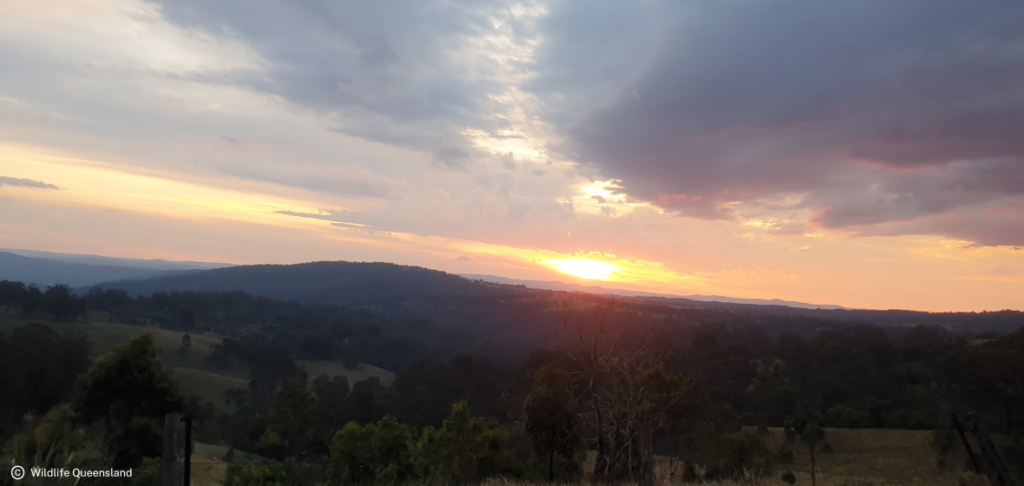
15 October 2024
As Queensland’s state election looms, political parties are outlining their plans for the future of the environment, but wildlife protection has received little attention so far.
As part of our commitment to staying apolitical, the Wildlife Preservation Society of Queensland (Wildlife Queensland) followed the standard practice of approaching the two major political parties and the Greens for their stance on wildlife and environmental issues in the lead-up to the election. The Katter Party was not contacted due to their established position on issues such as crocodile management.
Meetings were held with Minister Leanne Linard (ALP) and Sam O’Connor, MP and Shadow Minister for the Environment (LNP). An exchange of correspondence with Michael Berkman MP, spokesperson for the Greens, also provided insights.
All representatives indicated that further relevant policy announcements may be made closer to the election. However, aside from discussions on climate change and energy policy, there has been minimal focus on wildlife and habitat protection thus far. Below is a summary of the key issues raised by each political party, listed in party alphabetical order.
The Australian Greens
The Australian Greens have declared climate change as the single greatest threat to Queensland’s environment. Their key environmental policies include:
- A ban on new coal, oil, and gas projects.
- Ambitious emission reduction targets: 75% by 2030 and 100% by 2050.
- The introduction of a new Queensland Transmission Bill.
- A significant increase in funding to ensure proper management plans for all national parks.
The Greens also propose that mining be excluded from all protected areas and strongly oppose private development in national parks. Amendments to the Vegetation Management Act and the Nature Conservation Act to safeguard the habitat of near-threatened species are also on their agenda.
Additionally, they advocate for creating an independent Environmental Protection Authority that is adequately resourced to enforce environmental protections.
The Greens also support the expansion of Indigenous Land and Sea Ranger programs, ensuring greater protection and management of Queensland’s diverse ecosystems.
The Australian Labor Party (ALP)
The Australian Labor Party has continued to expand the Protected Area Estate (PAE), with a goal to protect 17% of Queensland by 2030. While the rate of growth will need to accelerate to meet this target, Labor is committed to continuing this expansion.
There is also a push to encourage private commercial developments to be located outside national parks. However, Wildlife Queensland has noted that it is not ALP policy to reinstate the “Cardinal Principle” of national park management, which was amended under the LNP Newman Government.
Labor has shown a strong commitment to enhancing State Marine Parks, with expected improvements to Moreton Bay’s zoning plan. The development of recovery action plans for threatened species will also continue.
Recently, the ALP announced a commitment to legislate an Environmental Protection Agency (EPA) as an independent state authority under a re-elected Queensland Government.
The ALP recognises the need to strike a balance between protecting people from wildlife and safeguarding wildlife from human impact. However, the broader focus of the ALP remains on addressing climate change and energy issues, which have significant, though indirect, effects on wildlife and the environment.
The Liberal National Party (LNP)
The Liberal National Party has expressed a commitment to expanding the PAE, pledging to do so at a faster pace and with additional funding for rangers to enhance park management. The LNP’s approach focuses on creating incentives for nature refuges and special wildlife reserves. While commercial ecotourism facilities in national parks remain on the table, the LNP insists that these developments must have an educational component.
Shadow Minister Sam O’Connor was informed about Other Effective Area-based Conservation Measures (OECMs), and the LNP is open to exploring their potential use to accelerate conservation efforts.
Like the Greens and Labor, the LNP acknowledges the need for improved management of marine parks, although there is no firm commitment to expanding them just yet.
Discussions around wildlife management with the LNP highlighted that while there is room for improvement, no clear direction has been outlined. The LNP has ruled out the use of nuclear power in Queensland’s energy mix.
Looking Ahead
“Regardless of which political party forms government, Wildlife Queensland will continue the battle to ban opera house traps to protect air-breathing aquatic fauna, to reinstate the Cardinal Principle of Management for national parks and accelerate the expansion of the Protected Area Estate. A new challenge will be achieving protection for hollow-bearing trees to address the housing crisis for our wildlife,” says Des Boyland, Secretary of the Wildlife Preservation Society of Queensland.
Wildlife Queensland will remain vigilant, advocating for stronger protections for the state’s wildlife and natural habitats, no matter which party leads the next government.
Des Boyland, Secretary
Wildlife Preservation Society of Queensland
Suite 1, Level 1. 30 Gladstone Road, Highgate Hill 4101
